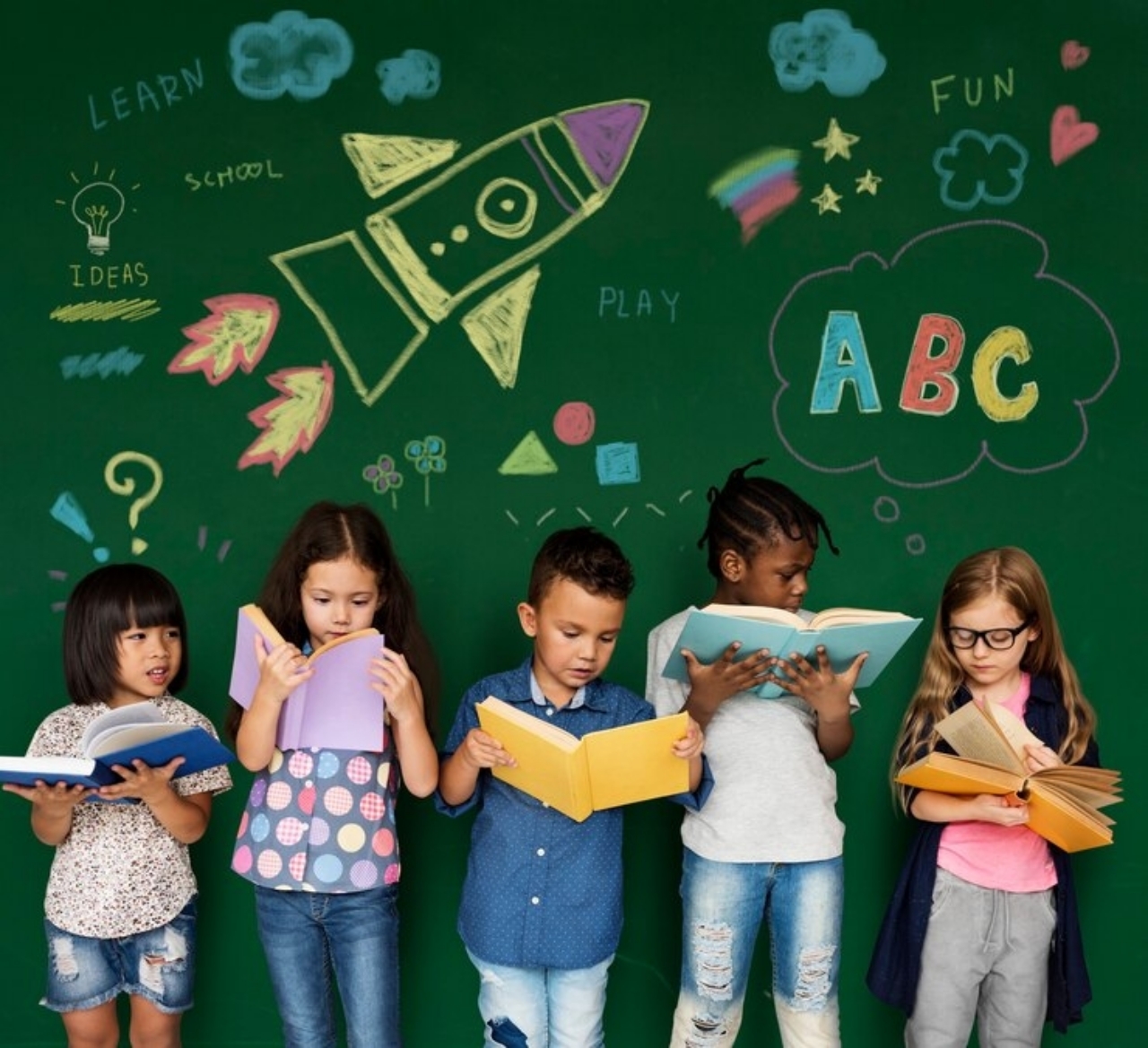Early childhood education (ECE) is a critical period in a child’s development, laying the groundwork for lifelong learning and success. For educators in this field, having a comprehensive understanding of the essential Early Childhood Education Units in ECE is paramount. This article will explore the 12 core units of early childhood education, providing a detailed overview of each to highlight their importance in shaping effective educators.
The early years of a child’s life are marked by rapid development and learning. As such, early childhood educators must be equipped with a broad range of knowledge and skills to support and nurture this growth. The 12 core units in ECE programs are designed to provide educators with the foundational competencies needed to foster a positive and impactful learning environment.
These units cover various aspects of child development, curriculum design, health and safety, family engagement, and more, ensuring that educators are well-prepared to meet the diverse needs of young children.
Key Takeaways
- Understanding physical, cognitive, emotional, and social growth from birth to age eight is crucial.
- Knowledge of various educational philosophies helps in creating diverse teaching approaches.
- Designing developmentally appropriate curricula ensures effective learning experiences.
- Promoting health, safety, and nutrition is a primary responsibility of early childhood educators.
- Building strong partnerships with families and communities enhances children’s learning experiences.
- Systematic observation and assessment are vital for effective teaching.
- Promoting language acquisition and literacy development is foundational for lifelong learning.
- Integrating math and science into everyday activities fosters critical thinking.
- Creative arts support creativity, self-expression, and emotional development.
- Promoting social and emotional development is crucial for future success.
- Creating inclusive learning environments ensures quality education for all children.
- Maintaining professionalism and ethical standards is fundamental to the practice of early childhood education.
1. Child Development
Understanding child development is fundamental for any early childhood educator. This Early Childhood Education Unit delves into the physical, cognitive, emotional, and social growth of children from birth to age eight. Educators learn about developmental milestones, the influence of genetics and environment, and the variations in development among children. By comprehending these aspects, educators can create developmentally appropriate learning experiences that cater to each child’s unique needs.
The physical development segment includes understanding motor skills development, both fine and gross, and how children progress through various stages. Cognitive development explores how children think, learn, and solve problems, emphasizing theories from Piaget, Vygotsky, and other developmental psychologists. Emotional development addresses how children understand and express emotions, while social development focuses on how they interact with others and develop relationships.
2. Early Childhood Education Principles and Practices
This unit introduces the core principles and practices of early childhood education. It covers various educational philosophies, such as Montessori, Reggio Emilia, and Waldorf, and how these approaches influence teaching methods and classroom environments. Educators also learn about play-based learning, the importance of creating a nurturing atmosphere, and strategies for fostering a love of learning in young children.
The Montessori method emphasizes child-led learning with teachers as guides, while Reggio Emilia focuses on self-directed experiential learning in relationship-driven environments. Waldorf education stresses imagination in learning, integrating arts into all academic disciplines. Understanding these philosophies helps educators create a diverse and adaptable teaching approach tailored to the needs of their students.
3. Curriculum Development
Curriculum development is a critical skill for early childhood educators. This Early Childhood Education Unit focuses on designing and implementing developmentally appropriate curricula that meet the educational needs of young children. Educators learn how to create engaging lesson plans, incorporate play and exploration into learning activities, and assess the effectiveness of their curriculum. Emphasis is placed on aligning activities with developmental stages and learning objectives.
Creating a curriculum involves understanding the interests and needs of children, incorporating various learning styles, and ensuring that activities are both fun and educational. For example, a science curriculum might include hands-on experiments, nature walks, and interactive storytelling to explain concepts. Continuous assessment and adaptation are crucial, ensuring that the curriculum remains relevant and effective.
4. Child Health, Safety, and Nutrition
Ensuring the health, safety, and nutrition of young children is a primary responsibility for early childhood educators. This unit covers essential topics such as first aid, emergency preparedness, disease prevention, and creating a safe learning environment. Educators also learn about proper nutrition and how to promote healthy eating habits among children, understanding the impact of diet on growth and development.
First aid training includes CPR, handling injuries, and managing chronic conditions like asthma or allergies. Emergency preparedness involves creating evacuation plans and conducting regular drills. Disease prevention covers hygiene practices, vaccination importance, and managing illness in the classroom. Nutrition education includes planning balanced meals and snacks, encouraging physical activity, and teaching children about healthy food choices.

5. Family and Community Engagement
Engaging families and communities is vital for the holistic development of children. This unit explores strategies for building strong partnerships with families and involving the community in the educational process. Educators learn about the importance of communication, cultural competence, and family-centered practices. By fostering collaboration between home and school, educators can create a supportive network that enhances children’s academic learning experiences.
Effective family engagement involves regular communication through newsletters, meetings, and conferences. Cultural competence means understanding and respecting diverse backgrounds and incorporating multicultural perspectives into the curriculum. Community involvement can include inviting local professionals to speak, organizing field trips, and participating in community events. These efforts help create a rich, supportive learning environment that extends beyond the classroom.
6. Observation and Assessment
Observation and assessment are crucial components of effective teaching. This unit teaches educators how to observe children’s behavior and development systematically. They learn to use various assessment tools and techniques to document progress, identify areas of need, and plan individualized instruction. Emphasis is placed on ethical practices and using assessment data to inform teaching strategies.
Observational techniques include anecdotal records, checklists, and time sampling. Assessment tools might involve standardized tests, portfolios, and developmental screenings. Ethical practices ensure confidentiality and sensitivity in handling assessment data. By continuously monitoring and assessing children’s progress, educators can tailor their teaching methods to better support each child’s learning journey.
7. Language and Literacy Development
Language and literacy are foundational skills for lifelong learning. This unit focuses on promoting language acquisition and literacy development in young children. Educators learn about the stages of language development, strategies for enhancing vocabulary and communication skills, and methods for fostering a love of reading. The unit also covers the role of storytelling, songs, and interactive activities in language learning.
Strategies to enhance language and literacy include dialogic reading, where educators engage children in discussions about the story, and interactive writing, where children participate in the writing process. Phonemic awareness activities, such as rhyming games and letter-sound recognition, and knowing about animals’ habitats, especially about the nature of birds, building the interest to discover more, and early reading skills. knowing about the birds can also help them create kind feelings for animals. Incorporating diverse literature that reflects children’s backgrounds and interests fosters a love of reading and promotes cultural awareness.

8. Math and Science for Young Children
Introducing young children to math and science concepts can be both fun and educational. This unit emphasizes the importance of early math and science experiences and provides strategies for integrating these subjects into everyday activities. Educators learn how to use play, exploration, and hands-on activities to teach basic math concepts such as counting, patterns, and measurement, as well as foundational science concepts like observation, inquiry, and experimentation. All these
Math activities can include counting games, shape sorting, and simple addition and subtraction with manipulatives. Science explorations might involve nature walks, simple experiments like growing plants, and discussions about weather and animals. By making math and science engaging and relatable, educators help children develop critical thinking and problem-solving skills.
9. Creative Arts
Creative arts play a significant role in early childhood education, fostering creativity, self-expression, and emotional development. This unit covers the integration of art, music, drama, and dance into the curriculum. Educators learn how to design activities that encourage children to explore their creativity, express their emotions, and develop fine motor skills. The unit also highlights the therapeutic benefits of creative arts for young children.
Art activities might include drawing, painting, and sculpting with various materials. Music education can involve singing, playing instruments, and movement activities like dancing. Drama activities encourage imaginative play and storytelling, while dance helps with coordination and physical expression. Creative arts provide an outlet for children to explore their feelings and develop a sense of identity.
10. Social and Emotional Development
Supporting social and emotional development is crucial for preparing children for future success. This unit explores strategies for promoting social skills, emotional regulation, and positive behavior. Educators learn about the importance of creating a supportive and inclusive classroom environment, teaching conflict resolution, and fostering empathy and cooperation among children. The unit also covers techniques for identifying and addressing social and emotional challenges.
Activities that promote social and emotional development include role-playing, cooperative games, and discussions about feelings. Educators teach children to recognize and manage their emotions, resolve conflicts peacefully, and build positive relationships with peers and adults. Creating a classroom culture that values respect, kindness, and inclusion helps children develop the social skills necessary for school and life.
11. Inclusive Education
Inclusive education ensures that all children, regardless of their abilities or backgrounds, have access to quality education. This unit focuses on strategies for creating inclusive learning environments and teaching diverse learners. Educators learn about the principles of universal design for learning (UDL), differentiating instruction, and adapting activities to meet the needs of children with disabilities. Emphasis is placed on promoting equity, respect, and a sense of belonging for all children.
Inclusive practices include modifying the physical environment, using assistive technologies, and providing individualized support. Educators learn to recognize and address the diverse needs of children, including those with learning disabilities, physical impairments, and behavioral challenges. Creating an inclusive classroom involves fostering an attitude of acceptance and ensuring that every child feels valued and capable of success.
12. Professionalism and Ethics in Early Childhood Education
Professionalism and ethics are fundamental to the practice of early childhood education. This unit covers the ethical standards, professional behaviors, and ongoing professional development required in the field. Educators learn about the importance of reflective practice, staying current with research and best practices, and advocating for the rights and well-being of children. The unit also addresses the responsibilities of early childhood educators in maintaining confidentiality and fostering trust with families.
Professional development includes attending workshops, pursuing advanced degrees, and participating in professional organizations. Reflective practice involves self-assessment and continual improvement of teaching methods. Ethical behavior includes maintaining confidentiality, treating all children and families with respect, and upholding the highest standards of integrity and accountability.
Frequently Asked Questions (FAQs)
Why is child development a critical unit in early childhood education?
Child development is crucial because it provides educators with an understanding of the various stages of growth and development. This knowledge enables them to create developmentally appropriate learning experiences that cater to each child’s unique needs.
How do early childhood education principles influence teaching methods?
Early childhood education principles, such as those from Montessori, Reggio Emilia, and Waldorf philosophies, provide diverse approaches to teaching. These principles influence classroom environments, teaching methods, and the overall educational experience, allowing educators to tailor their approach to meet the needs of their students.
What is the importance of family and community engagement in early childhood education?
Family and community engagement is vital because it creates a supportive network that enhances children’s learning experiences. Strong partnerships with families and community involvement ensure a holistic approach to education, fostering better outcomes for children.
How do observation and assessment benefit early childhood education?
Observation and assessment allow educators to systematically monitor and document children’s progress. This data helps in identifying areas of need, planning individualized instruction, and continuously adapting teaching strategies to better support each child’s learning journey.
What role do professionalism and ethics play in early childhood education?
Professionalism and ethics are fundamental in maintaining the highest standards of integrity and accountability in early childhood education. They involve ongoing professional development, reflective practice, and ethical behavior, ensuring that educators uphold the rights and well-being of children and families.
Conclusion
The 12 core units of early childhood education provide a comprehensive foundation for future educators, equipping them with the knowledge and skills necessary to support young children’s development and learning. By understanding child development, creating engaging curricula, promoting health and safety, involving families and communities, and embracing professionalism and ethics, educators can make a significant impact on the lives of young children. These core units ensure that early childhood educators are well-prepared to create nurturing, inclusive, and stimulating learning environments that foster the growth and development of every child.

